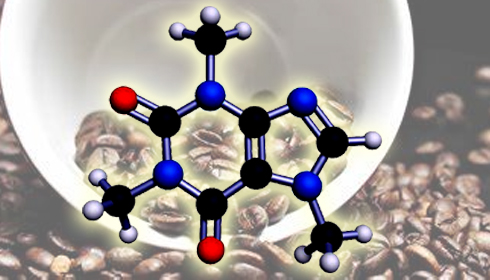
Moderate Caffeine Consumption Linked to Lower Cardiometabolic Disease Risk: Study
The risk of cardiometabolic multimorbidity (CM) is reduced when individuals consume moderate amounts of coffee and caffeine, according to a new research, published in the Journal of Clinical Endocrinology & Metabolism by the Endocrine Society.
CM is characterised by the presence of at least two cardiometabolic diseases. The prevalence of cardiometabolic disorders, such as type 2 diabetes, coronary heart disease, and stroke, is on the rise due to the ageing of populations around the world.
Cardiometabolic disorders, such as type 2 diabetes, coronary heart disease, and stroke, are becoming a rising public health concern worldwide as populations age.
According to the study, people who drink moderate amounts of coffee or caffeine regularly are much less likely to acquire numerous cardiometabolic disorders. Researchers defined "moderate consumption" as three cups of coffee or 200-300 milligrammes of caffeine per day.
Researchers linked this level of intake to a 48.1% lower risk of new-onset CM among coffee drinkers and a 40.7% lower risk in those who consumed equal quantities of caffeine from other sources.
The lead researcher, Dr Chaofu Ke, of Suzhou Medical College's School of Public Health, emphasised the relevance of the findings and stated, "Consuming three cups of coffee, or 200-300 mg caffeine per day, might help to reduce the risk of developing cardiometabolic multimorbidity in individuals without any cardiometabolic disease."
Data from the UK Biobank, a large, comprehensive study with over 500,000 participants, supports this result, with 172,315 individuals free of any cardiometabolic disorders at the start of the study.
The researchers established the study's outcomes by analysing individuals' medical histories, either self-reported or obtained from connected healthcare records, such as primary care data, hospital records, and death registries. All levels of coffee or caffeine use reported a decreased incidence of CM, with moderate consumers benefiting the most. Importantly, this adverse association was observed at practically every stage of CM development.
The results of this study align with conventional knowledge, as the use of certain natural substances has long been associated with health benefits. Across cultures, people have used coffee and other caffeinated beverages for centuries, not only for their energizing effects but also for their purported health benefits.
Traditional Indian medicine, for example, acknowledges the use of natural stimulants to promote cardiovascular health, and this study provides modern scientific legitimacy for these traditional methods. However, a focus on moderation is critical.
Studies have linked excessive caffeine consumption to health issues such as anxiety, insomnia, and heart palpitations. In this context, moderation is consistent with the traditional concept of balance, or "sattva," in Ayurveda, which promotes a balanced approach to all aspects of life, including eating.
While earlier studies have repeatedly demonstrated the preventive effects of coffee and tea against particular cardiometabolic disorders such as diabetes or heart disease, the new study fills a key gap by focusing on many concurrent diseases.
According to Dr. Ke and his colleagues, those with a single cardiometabolic disorder had a twofold higher risk of all-cause mortality than those without such conditions. Individuals with CM, on the other hand, are four to seven times more likely to die.
This increased risk emphasises the significance of preventing CM, which can cause more severe physical and mental health problems than individual diseases.
Dr Ke pointed out, "The findings highlight that promoting moderate amounts of coffee or caffeine intake as a dietary habit to healthy people might have far-reaching benefits for the prevention of CM."
Given the global prevalence of coffee and other caffeinated beverages, these findings have significant public health implications. Encouraging moderate coffee drinking could be a simple and successful method for lowering the prevalence of cardiometabolic illnesses, especially in older populations.
However, it is crucial to emphasise that coffee is not a panacea, and people should view its intake as part of a larger approach to a healthy lifestyle that includes a balanced diet, frequent physical activity, and stress management.
The study highlights the potential of coffee and caffeine as preventive agents against complicated cardiometabolic diseases. While traditional wisdom has always supported the health benefits of natural stimulants, contemporary research now provides evidence-based insights into their potential involvement in reducing some of the most common health problems that ageing populations face today.